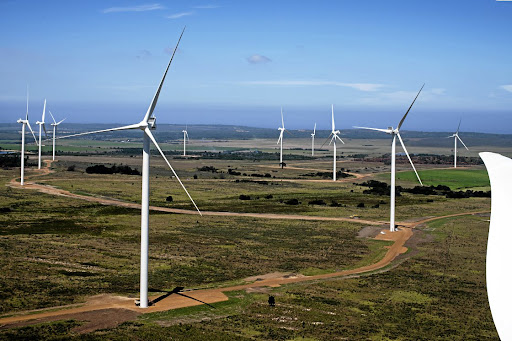SA could face carrot-and-stick approach over just energy transition

Neither $8.5bn from the US and Europe nor the risk of restrictions is likely to cause immediate political change.
The excitement was palpable when the Just Energy Transition Partnership — a deal that includes $8.5bn in grants and concessional financing over the next five years — was announced. Financed by the US, Britain, France, Germany and the EU, the deal was an example of what co-ordination between historically pollution-heavy and emerging economies could look like.
The funding is designed to support the following goals:
· Early retirement of coal plants.
· Construction of renewable energy sources.
· Support for coal-dependent areas.
These are important concerns for SA, the world’s seventh-largest coal producer and fourth-biggest coal exporter.
But as the COP26 summits wrapped up over the last week, two deeply interlinked questions remain unanswered. Does SA have the political will to do its fair share in the global fight against climate change — or is this partnership an external set of imposed terms and conditions using sticks and carrots? And second, if it is the sticks and carrots, is this enough to drive change?
Political will has always trumped financial capacity as the biggest barrier to decarbonisation. This was revealed by the sequence of events over the past month. After the Just Energy Transition Partnership announcement came from Glasgow, mineral resources & energy minister Gwede Mantashe publicly shared his commitment to building more coal plants in SA — and stated he would be willing to go to court to fight for it.
So the carrot may not work as planned — but will the “stick” of carbon tariffs, restrictions on trade and exclusion from deals work? The stick is already proving to be a challenge for countries in South America. Recently, European leaders have announced their opposition to a free-trade agreement between the EU and Mercosur, the South American trade bloc comprising Argentina, Brazil, Paraguay, Uruguay, and Venezuela. This opposition is rooted in climate and biodiversity concerns, particularly the destruction of the Amazon.
French President Emmanuel Macron has stated that the opposition will remain once France takes over the rotating presidency in 2022.
Such restrictions, or “sticks”, could be catastrophic for SA, which relies on the export sector for a large share of its growth. From 2016 to 2020 real exports as a share of GDP averaged 26%. SA’s key trading partners include the US and EU, which could apply restrictions in the not-so-distant future. If key export sectors — including agriculture and mining — become uncompetitive due to carbon tariffs, jobs and wages could be lost, both in these sectors and in linked sectors such as construction and manufacturing. The impact of carbon tariffs would far exceed a contraction of the coal subsector.
The carrot-and-stick metaphor is designed to understand the combination of rewards and punishments that can result in a desired behaviour. Neither $8.5bn from the US and European countries nor the risk of heavy restrictions is likely to result in immediate change in the current political climate.
Front-row seat
Instead, the attention has to be turned to understanding what the cost of inaction is — not for Americans, Europeans, or Australians, but for sub-Saharan Africans, especially South Africans. The frequency of climatic shocks in Sub-Saharan Africa is rocketing. Compared with 1970-1979 the 2010-2019 period had triple the frequency of droughts, more than quadruple the number of severe storms, and ten times as many floods.
SA has had a front-row seat. The International Panel on Climate Change has noted that temperatures in Southern Africa are rising at twice the global average. SA experienced 56 natural disasters between 2000 and 2019 — the second-highest in sub-Saharan Africa. SA is particularly vulnerable to droughts; earlier this year the country declared its third national state of disaster for drought in the past four years.
The cost of climatic shocks will put substantial pressure on governments and communities and erode important development progress from the last two decades. Just 16% of the R95bn lost to weather-related disasters in the past 40 years were covered by insurance, crippling the rebuilding progress.
Ending SA’s coal addiction and moving towards a just transition will require far more than $8.5bn — it will require genuine and widespread political will. In a nod to strong political will for climate adaptation the National Treasury is reviewing SA’s approach to financing disaster relief amid the increasing frequency and severity of climatic shocks and more multiyear disasters.
But the political will for climate mitigation is sparse at best, with mixed signals emerging from the department. Faced with the climate crisis, SA policymakers must remember that some of the worst effects of climate change will be felt by those in their provinces, communities and families. It is time to form a genuine partnership with other countries.